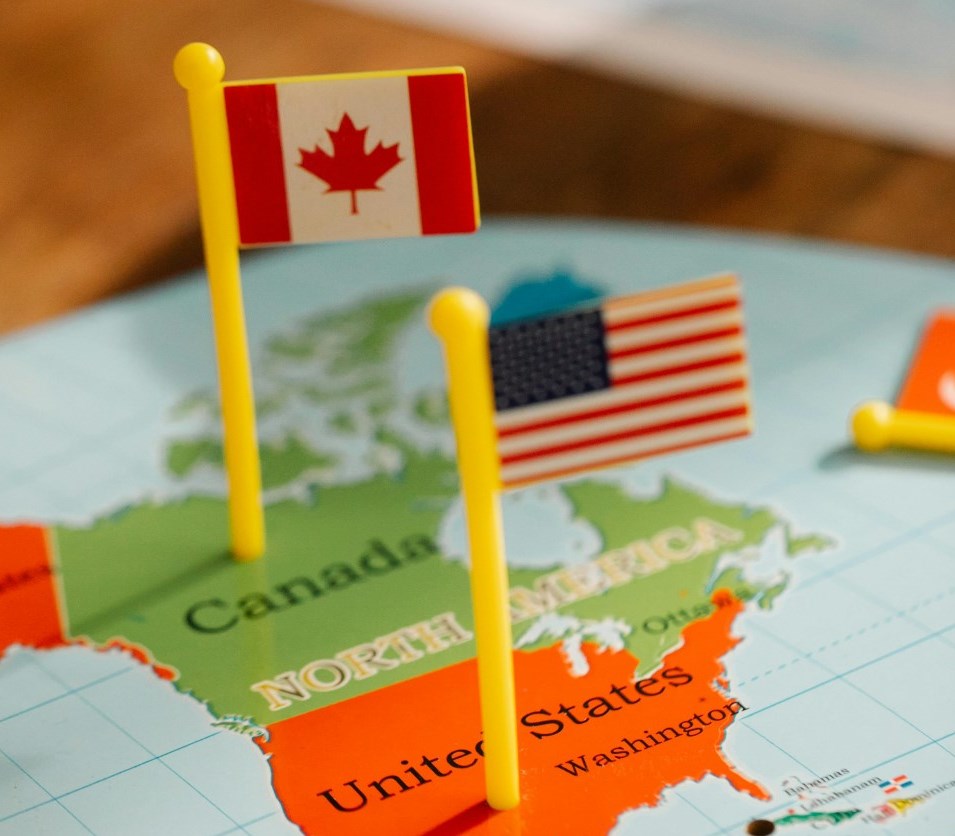The threat of tariffs on Canadian and Mexican exports to the United States has been temporarily delayed, but the reprieve is just that—temporary. These tariffs are not just another round of trade skirmishes; they signal a deeper shift that could mark the beginning of the end for Bretton Woods-era multilateralism—the rules-based global trade order that has shaped international commerce since 1944.
Now that Donald Trump is back in the White House, his administration is escalating its push for economic nationalism, using tariffs and trade barriers as leverage to reshape global commerce on U.S. terms. The 30-day delay is not a retreat—it’s a tactical pause before the next round of pressure. And when that pressure comes, Canada will feel the full weight of it. The looming tariffs on Canadian and Mexican products, including agri-food exports, could dismantle what remains of the Comprehensive United States-Mexico-Canada Agreement (CUSMA).
Trump sees trade as a zero-sum game, believing the United States has been taken advantage of for decades. The imposition of tariffs is not about fixing a broken system—it’s about reshaping the global trade order to bolster American industries, gain negotiating leverage, and appeal to his political base. Even if Canada retaliates with 500 per cent tariffs, it would be irrelevant to Trump’s calculus. The objective is power—exercising it, consolidating it, and using it to rewrite trade relationships on U.S. terms.
Since the signing of CUSMA in 2020, Canada has operated under the assumption that trade relations with the U.S. would remain stable. But with tariffs once again weaponized as a policy tool, the reality is clear: The era of predictable North American trade is over. Trump’s strategy is to return to bilateral agreements, where the U.S. pressures individual nations instead of negotiating within multilateral frameworks.
In this scenario, Canada’s bargaining power is drastically weakened. The U.S. remains the primary market for Canadian agricultural exports, with nearly 60 per cent of total agri-food shipments destined for American consumers. A tariff war would devastate Canadian producers, forcing them to either absorb higher costs, pass them on to consumers, or search for alternative markets—none of which are ideal. For Canadian farmers and food processors, the impact is immediate and brutal. Tariffs on dairy, beef, pork, grains, and processed foods erode their competitiveness in the U.S. market, reducing profit margins for an industry already struggling with high inflation, labour shortages, and supply chain disruptions. The agri-food sector, which once thrived under integrated North American supply chains, now faces the prospect of long-term instability.
Alternative markets in Europe and Asia may offer some opportunities, but they come with logistical barriers, regulatory hurdles, and lower profit margins. The notion that Canada could simply pivot away from the U.S. market is a fantasy—economic and geographic realities dictate otherwise. Meanwhile, Mexico is also hit by Trump’s tariffs, but unlike Canada, it has deeper trade ties with China and may pivot towards expanding partnerships in Asia and Latin America. This could further fracture North America’s economic integration, leaving Canada isolated in a shifting trade landscape.
The most concerning aspect of this shift is how ill-prepared Canadian policymakers appear to be. There is little evidence that Ottawa grasps the scale of the transformation underway. Instead of proactively countering tariffs with smart trade diplomacy, Canadian leaders remain fixated on multilateralism—a system Trump is dismantling piece by piece. Retaliatory tariffs, though politically necessary, are a blunt instrument. They will not dissuade Washington from its broader goal: restructuring trade agreements to serve U.S. interests first. As tariffs become the norm rather than the exception, CUSMA itself could become obsolete.
Trump has never viewed NAFTA—or its replacement, CUSMA—as a good deal for the U.S.. His administration is likely to push for new, one-on-one agreements where America’s economic power is used to extract maximum concessions from Canada and Mexico. The era of structured dispute resolution and predictable trade policies may be over. While external trade threats loom, Canada also faces self-inflicted economic weaknesses. Interprovincial trade barriers remain a major obstacle, limiting economic flexibility just when Canada needs it most. While Ottawa scrambles to react to U.S. tariffs, businesses still struggle to move goods freely within Canada due to outdated, protectionist regulations. If Canada wants to offset the impact of external trade shocks, it must first eliminate these internal inefficiencies. A unified domestic market is the foundation for stronger international trade partnerships.
The agri-food sector must prepare for a future of permanent trade uncertainty. Canadian producers will need to invest in diversification strategies, even if expanding into non-traditional markets is costly. Meanwhile, policymakers must shift from damage control to proactive trade strategy. Simply reacting to U.S. tariffs isn’t enough—Canada must forge stronger trade alliances beyond North America.
Trump’s tariffs are not just a policy shift—they represent a fundamental restructuring of global trade dynamics. Canada must adapt or risk being left behind. As Trump rewrites the rules of global trade, Canada cannot afford to react passively. Failing to adjust now will leave the economy permanently vulnerable—and unable to compete in a world where America dictates the rules.
Dr. Sylvain Charlebois is a Canadian professor and researcher who specializes in food distribution and policy. He is the senior director of the Agri-Food Analytics Lab at Dalhousie University and co-host of The Food Professor Podcast. The media frequently cites him for his insights on food prices, agricultural trends, and the global food supply chain.
©
The commentaries offered on Â鶹ÊÓƵ.ca are intended to provide thought-provoking material for our readers. The opinions expressed are those of the authors. Contributors' articles or letters do not necessarily reflect the opinion of any Â鶹ÊÓƵ.ca staff.




